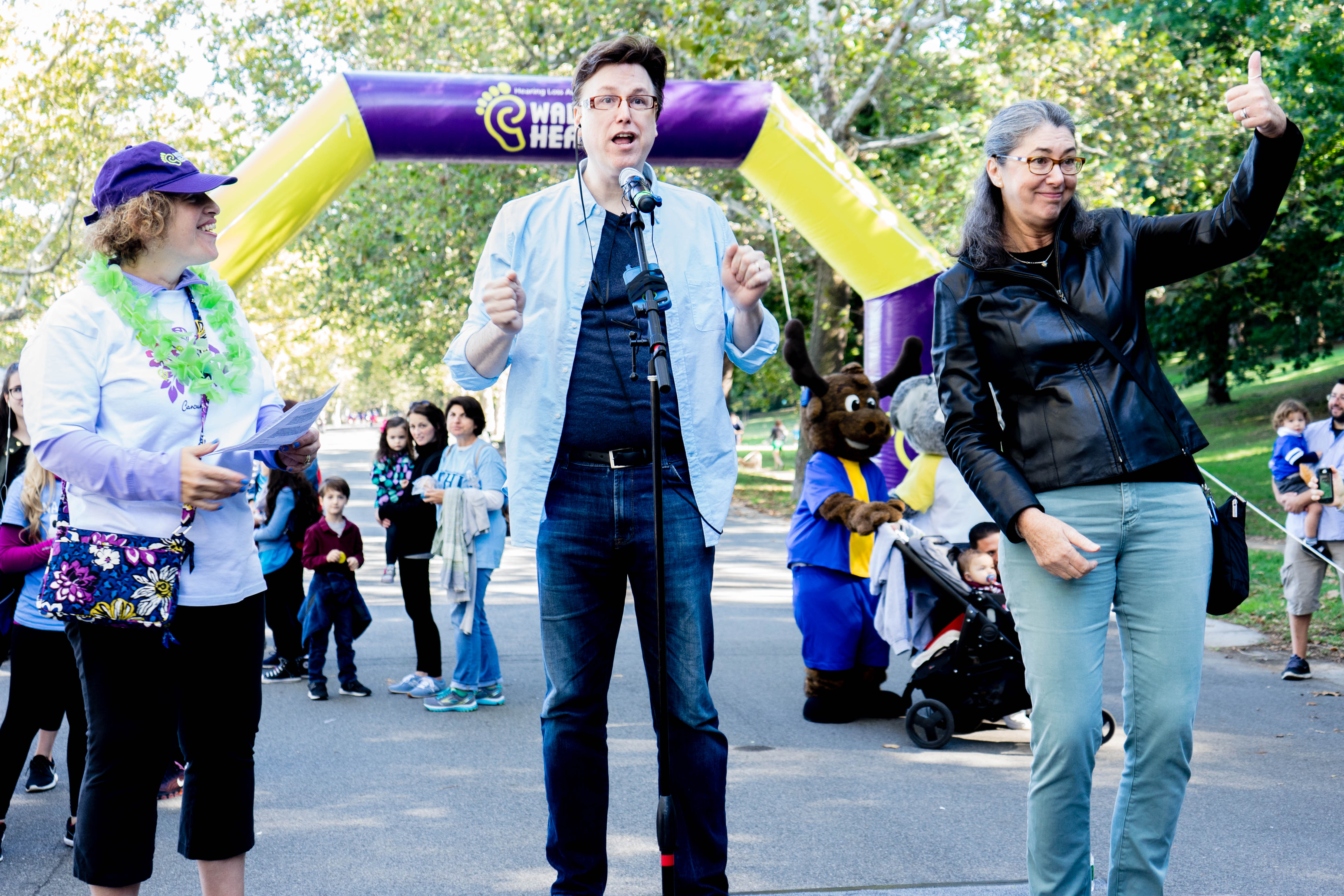I am not Deaf and not a sign language user, but I am extremely hard of hearing and I know how frightening it can be when the police pull you over and you’re unsure you’ll be able to understand them — or be able to make yourself understood. I also realize, thanks to my own recent traffic stop, how easy it is to make the kind of common mistakes that can get you in trouble.
These thoughts were prompted by the recent police shooting death in North Carolina of 29-year-old Daniel Harris, who was Deaf, is a reminder for all of us with hearing loss that we need to be extra cautious when pulled over by a police officer.
According to news accounts, Harris, who uses American Sign Language, was shot and killed after failing to pull over during a traffic stop near Charlotte. He was pursued by a state trooper as he drove to his own neighborhood, where he then got out of his car. The North Carolina State Bureau of Investigation is conducting a criminal inquiry into the incident and has declined to give further details.
Did the trooper not understand what Harris was saying to him, or vice versa? Investigators have not commented on whether Harris’ deafness played a role, but his brother believes that if the officer had known he was Deaf, things might have ended differently.
So what happened to me?
This summer as I was driving on the Massachusetts Turnpike (not speeding, I might add) I noticed a police car behind me in the lane to my left. He stayed there for many miles before finally turning on his lights to pull me over. The turnpike is a dangerous road, so I drove on to the next exit before pulling over.
As the officer got out of his car, I should have left my hands on the steering wheel where he could clearly see them, but instead I reached up to get a visor card identifying me as a deaf driver. I also reached over to the glove compartment (a risky move, I now know) to get my registration.
I should have watched as he approached the car so I would know on which side of the car to expect him, but I was too busy reaching for things. The next thing I knew, the officer was at the passenger side window. I was already confused about why I’d been pulled over, and I was completely nonplussed to see him on that side of the car. I’m not even sure I remembered to say, “I’m very hard of hearing,” which I normally do.
He ignored my offered registration and the “Driver is Deaf” visor card and said brusquely that, according to his computer, my driver’s license was expired. I didn’t understand what he was saying. I have a valid driver’s license. But then I remembered that four years ago I had replaced my Massachusetts driver’s license with a New York one, which is my official mailing address. I handed him the New York license. He looked it over, then grudgingly handed it back and walked away.
“Wait!” I cried. “I don’t know how to get back on the highway.” He didn’t turn around. I tried shouting. I thought about getting out of the car but decided that would be really stupid. I tried to wave him down as he drove by, but he ignored me. I was flustered and furious, but I eventually found my way back to the highway.
Other than his rudeness, nothing bad happened. If I weren’t a middle-aged white woman driving a VW Golf — who has learned to control her temper — it might have been different.
But I realize this kind of situation can be difficult and even dangerous for someone with hearing loss. Remember, a police officer can’t tell by looking at you that you’re Deaf or hard of hearing. Even if you tell the officer you have hearing loss, he’s still going to expect you to answer his questions. You need to be careful that you understand what the officer is asking. For example, unless you are sure he is asking for your registration, do not just reach over to the glove compartment to retrieve it, which could be misinterpreted as reaching for a weapon.
The situation is even more difficult at night, when the headlights from the police car behind you may blind you and make lipreading (also called speechreading) difficult. What if the officer doesn’t even get out of the car, but blares through his loudspeaker, “Get out of the car!” Or did he say, “Don’t get out of the car”? This kind of misunderstanding could get you killed, or at least roughed up. Unfortunately, the addition of hearing loss to a tense situation increases the likelihood things can escalate.
The American Civil Liberties Union and the actress Marlee Matlin, who is Deaf and married to a police officer, teamed up to produce an excellent video on how to handle a traffic stop if you are Deaf or hard of hearing. It has useful advice both for those with hearing loss and for those who hear perfectly. Matlin uses American Sign Language in the video, but it is also captioned and there is a voice-over for the hearing.
Another thing that can help is a visor card, informing police that you are Deaf or hard of hearing. The Driver is Deaf card from the Center for Hearing Loss Help can be ordered for $4.95.
There has been a lot of discussion on my website on exactly where to display the card. One suggestion, to tape it to the back window so an officer can see it as he walks up to the car, was nixed by those who thought such a prominent display would make drivers a target for muggers. The center suggests clipping the visor card to the driver’s side visor. You might also consider a second one for the passenger side visor as well.
The center also offers these other tips if the police pull you over:
- If it is dark and you are able to, stop under a street lamp, or pull into a lighted parking area. This will make it easier for you to read lips.
- Open your driver’s side window all the way so the officer can see you.
- If it is dark, turn on your dome light.
- Place both of your hands on the steering wheel well before any police officer approaches your vehicle. Police officers want to see both your hands at all times. Keep your hands on the wheel until after you establish effective communication with the police officer.
- Show the officer your visor card and the instructions on the back so he knows how to effectively communicate with you.
You should also watch the officer closely as he gives you instructions. If you don’t understand the officer’s words, repeat: “I am Deaf [or hard of hearing]. I did not understand what you just said because I couldn’t hear you. Would you please write down what you just said?”
As the Harris case shows, those of us with hearing loss need to be extremely cautious if we are pulled over by the police. The visor card, and watching the video, is a good place to start.





 Katherine Bouton is the author of “
Katherine Bouton is the author of “ I emphasize “may” because Ménière’s is notoriously difficult to diagnose. There is no definitive test for Ménière’s. It’s a clinical diagnosis, based on symptoms. According to the Mayo Clinic, the criteria for Ménière’s are two episodes of vertigo, each lasting at least 20 minutes but no longer than 24 hours;
I emphasize “may” because Ménière’s is notoriously difficult to diagnose. There is no definitive test for Ménière’s. It’s a clinical diagnosis, based on symptoms. According to the Mayo Clinic, the criteria for Ménière’s are two episodes of vertigo, each lasting at least 20 minutes but no longer than 24 hours; 


 aybe it isn’t, but I still want to hear it.
aybe it isn’t, but I still want to hear it.

